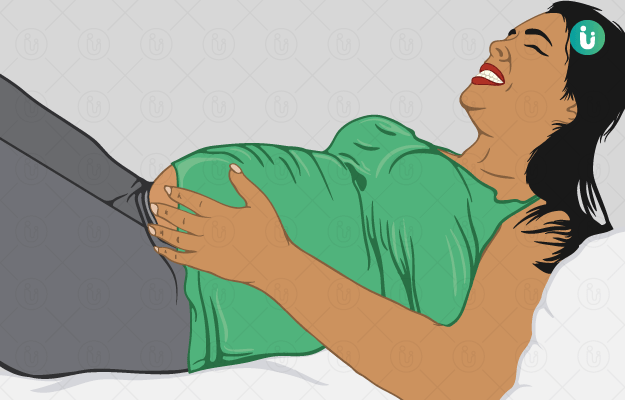What is pain during pregnancy?
The body goes through many changes during pregnancy including hormonal changes as it makes room for the growing baby. Many changes take place in the body’s normal physiology, which lead to pains in different parts of the body.
What are its main associated signs and symptoms?
The main signs and symptoms associated with pain during pregnancy are:
- Constipation
- Nosebleeds
- Fatigue
- Problems during urination
- Changes in emotions and feelings
- Worry
- Swelling in the legs
- Bloating
- Nausea
- Vomiting
- Bleeding gums
- Fear
- Sweating
- Weight gain
- Fever
- Breast pain
- Vaginal discharge
- Forgetfulness
- Chills
- Heartburn
- Breathing issues – dyspnoea
What are the main causes?
The main causes of pain during pregnancy are:
- Preeclampsia (high blood pressure) causes a headache or a migraine
- Muscles and ligaments around the uterus begin to stretch which causes pain in one or both sides of the lower belly
- The growing weight of the uterus causes pain, tingling or a numbing sensation in the legs
- The womb puts a strain on the posture and the back, leading to a backache
- Placental abruption, a condition in which the placenta separates from the uterus, causes constant pain
- Pregnant women are more prone to getting foot and leg cramps which produce a sudden and sharp pain in the muscle
- Urinary tract infections cause lower back pain and lower abdominal pain
- In some women, the joints become loose and create an unstable pelvis which causes pain in the hips and legs
- An ectopic pregnancy, a condition in which the fertilised egg is implanted outside the uterus, can produce intense pain accompanied with bleeding
- Spontaneous miscarriages cause moderate to a severe backache
How is it diagnosed and treated?
To diagnose the cause of pain during pregnancy, the doctor goes through the medical history to find out if an underlying condition is the cause of pain. The doctor also conducts a physical examination and notes down the symptoms reported by the patient.
The following treatments are generally used to treat pain during pregnancy:
- Oral medications like opioid analgesics, nonsteroidal anti-inflammatory drugs (NSAIDs) and painkillers are given to reduce pain
- Fentanyl patches to provide relief from constant pain
- Surgery in case the pain is due to non-pregnancy-related causes like gallbladder inflammation, ruptured appendix, kidney stones, peptic ulcer, etc.

 OTC Medicines for Pain during Pregnancy
OTC Medicines for Pain during Pregnancy















